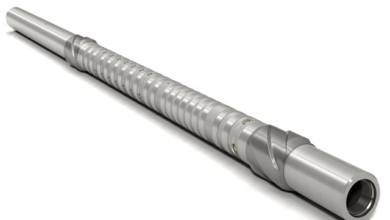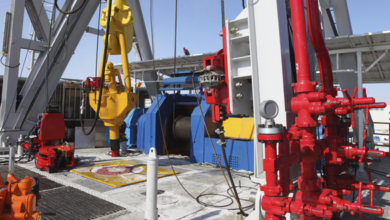Louis Romo, BP: Finding common ground to advance deepwater well control practices

By Katherine Scott, associate editor
For Louis Romo, segment technical authority – well control for BP, a career in the oil and gas industry was the result of a series of fortunate but non-linear events. As a freshman at Texas A&M University in 1986, plans were to pursue a political science and economics degree. Just a year later, however, he decided to take a break from school. When he returned three years later, he decided to change his major to geophysics because he wanted to be a volcanologist. “I wanted to go hiking up volcanoes; that seemed cool. But I soon figured out that the career path was really limited. It was hard to make a living and hard to raise a family.”
The summer before graduation, he took on an internship with Corpoven, a former subsidiary of PDVSA, so he could spend a summer on a rig in Venezuela. “It was just this fluke thing that I ended up in Venezuela, and it was a blast.” Graduating in 1995 with a bachelor’s degree in geophysics, Mr Romo then decided that he wanted to learn as much as he could about drilling, so he joined Aggie Drilling Research as a research engineer. Assignments included studies of riserless drilling and Texaco’s Deepstar project. “It was more desktop engineering, but that was a great part of my life because I was still young, and the guys that I worked with were very intelligent. They taught me a great deal.”
His path changed once more two years later after receiving a Master’s Degree in Petroleum Engineering when he accepted a position with Boots & Coots as an engineer. “The door kind of opened, and I got to see the industry from a new perspective when things are really out of control and haven’t worked out well; I thought, ‘wow, I love this.’ ”
After three years of responding to well control emergencies, in 2000 Mr Romo joined BP Amoco as a drilling engineer because he wanted to be a part of drilling wells. “I had seen the research and helped with blowouts in my previous experiences, but this time I wanted to be a part of the operations and the challenges associated with delivering wells. I was fortunate in that I got to do a lot of critical well work, HPHT work, and back then we were kind of on the edge.” This included planning and executing several high-rate gas wells and overseeing fit-for-purpose technology implementations that resulted in BP’s first successful onshore rotary steerable application on the Gulf Coast.
In November 2011 Mr Romo moved into his current position overseeing BP’s global well control policy across BP operations. He helps bridge gaps and implement mitigations to ensure smooth implementation of company standards. “For example, we can’t take a well control document that’s focused on the Gulf of Mexico and expect somebody in Canada drilling oil sands to be able to meet those same requirements. We have a defined deviation process along with decision rights and, as segment technical authority, I recommend changes.”
In his position at BP, Mr Romo has been working to influence not only well control policies at BP but also guidelines for the wider industry. As chairman of a steering committee that is leading the rewrite of the IADC Deepwater Well Control Guidelines, he is working with more than 70 industry experts to revise and update the comprehensive document on well planning, well control procedures, equipment, emergency response and training issues specific to deepwater drilling.
Ultimately, Mr Romo said, the rewrite will direct the guidelines to focus more on rig employees, including the materials they use on equipment, planning, process safety, procedures, training and emergency response. “It’s really important that we do this right,” he said. “At the end of the day, we’re going to end up with a document that’s going to help the guys on the rig. It will be a good resource for them.” Mr Romo hopes the steering committee will complete the rewrite, which began in February, by early next year.
The rewrite project is also giving the industry’s well control experts an opportunity to connect, Mr Romo said. “It’s not about contractors or operators and the guidelines. It’s about us in the industry and the guidelines. That’s really key because there’s so many different vantage points to the same situation that we’ve got to come together as an industry and try to understand each other’s viewpoints if we’re going to get these things right,” he said. “I think IADC does really good in bringing that aspect of our industry together. We all want the same thing; it’s just how do we get there.”
He continued: “But that’s the great thing about our industry. No matter what niche you’re in, people just want to give and help. From that standpoint, I don’t know of any other industry where that occurs. In hindsight, I’m really glad that I didn’t stick with political science and economics.”



